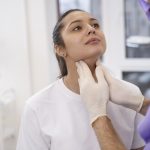The increasing trend toward conducting clinical trials outside the United States is an important consideration in discussing ways to improve the efficiency of trials. The number of patients enrolled in clinical trials is decreasing in the United States and increasing abroad.
Nevertheless, regulatory times are often the main reason why clinical trials take a lot of time to complete. You should consider them when choosing the best places outside the US to run clinical trials.
Latin America
Latin America is a great place to develop Clinical Trials. Even though their regulations are strict, countries are trying to improve their conditions to increase the research culture throughout the region. Countries like Colombia and Ecuador are the ones who are taking the lead offering better and efficient processes. Meet those times up next.
Colombia – 8 Weeks
The INVIMA is the regulatory agency in Colombia. It stands for the National Institute of Drugs and Food Vigilance in Spanish. Nowadays, in Colombia it can take up to 60 days to process, evaluate and approve a clinical research study protocol involving an investigational drug. In April 12, 2016, INVIMA announced this reduction from 4.5 months (135 days) to 2 months (60 days). The government stated that it would achieve this time reduction by improving the efficiency of internal processes without compromising the quality of the evaluation of a study protocol.
This make Colombia the Best Place outside US to run Clinical Trials.
Ecuador – 10 Weeks
The Ecuadorian Sanitary Control Agency is called ARCSA. In Ecuador, it may take up to 65 days since the moment the applicant submits an application until they get their final approvals.
Ethics Committee: They come together twice a month. There are several ethics committees in Ecuador. This means that your documents can be submitted at least once a week. Once your documents are submitted, it takes up to 20 business days (4 weeks) to get the approval.
ARCSA – MOH: Documents will be submitted and returned in no less than 45 weekdays. (6 weeks) It means that it may take up to 6 weeks for your documents to be approved by the Ecuadorian MOH.
Ecuador’s Clinical Research experience is being developed at great speeds. Regulatory times in Ecuador are not far from Colombia.
Peru – 15 Weeks
The Peruvian regulatory authority is known as the National Institution of Health or INS.
Ethics Committee: Depending on the project complexity the submitted application would be reviewed in between 20 to 40 days. (6 weeks)
INS – MOH: Once the document has gone through the ethics committee, the protocol must go through INS approval. According to the INS CTManual, the applicant must submit a request for clinical trial authorization electronically. This process takes up to seven days. (1 week)
The INS review and approval process for a clinical trial application take up 60 to business days, it depends on the study. Usually, it takes 40 business days. (8 weeks)
INS and Ethics Committee approvals should not be conducted in parallel.
Chile – 19.5 Weeks
The Chilean National Institute of Public Health or ISP was created in 1979. It employs 688 people in six departments.
Ethics Committee: In this case starting from submission until approval the Chilean ethics committee takes up to 13 weeks calendar.
ISP – MOH: When comparing approval times by the ethics committee from the MOH, it is pretty faster. The MOH in this case is only half the time, 6.5 weeks.
Eastern Europe
Most countries in Eastern Europe have the same regulatory process. The set-up period comprises the following activities:
- Study essential documents writing\translation (protocol, IB, ICF) – 1.5 months (7 weeks)
- Study documents collection, preparation of documents for initial submission to regulatory authorities – 2.5 months (10 weeks)
- Local Ethic Committee approval and obtaining of Import license – 1 month (4 months)
Thus, the whole process for start-up activities takes 5 months in general.
Conclusions
In Summary, in most countries, the regulatory approval process could take approximately from three to six months. Sponsors or CROs who do not know how to navigate each country’s system may experience longer timelines. Also, in many countries, it is difficult to obtain approvals for studies that include placebos.
Remember that this time reflects only the amount of time taken to check and approve a document. If a specific document needs to be corrected it will take a little more time to get to the final approvals. Our recommendation is to look for partners who have established good relationships with regulatory authorities. That’s is the key to shortening
[
Related Articles:
https://fomatmedical.com/2017/06/clinical-trials-latin-america-challenges-opportunities/


